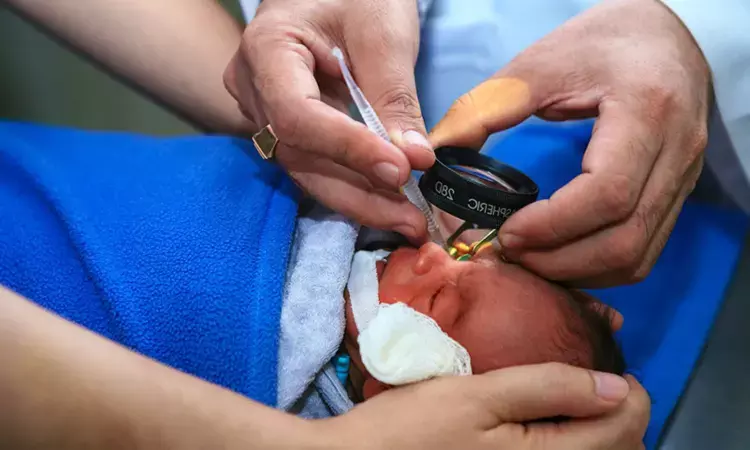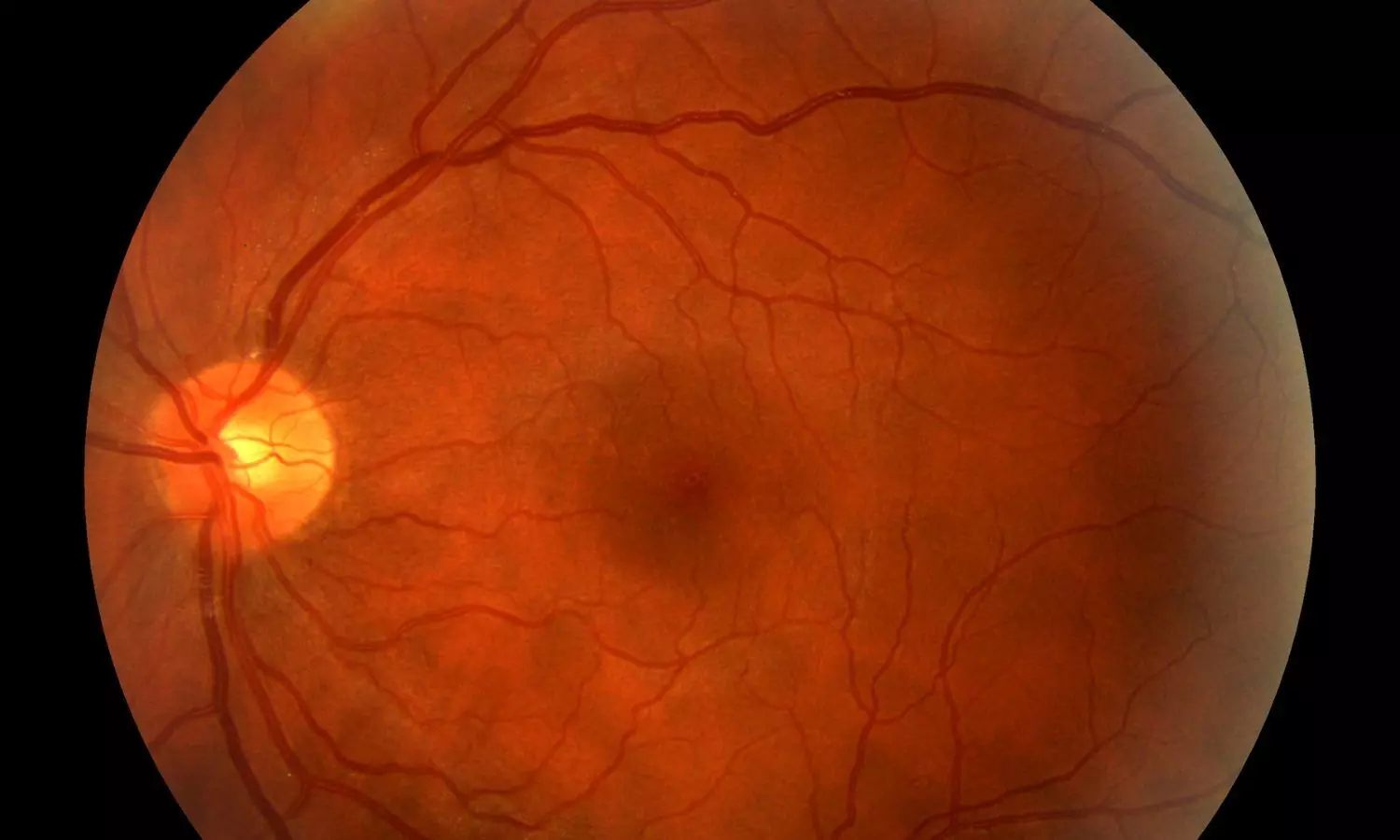- Home
- Medical news & Guidelines
- Anesthesiology
- Cardiology and CTVS
- Critical Care
- Dentistry
- Dermatology
- Diabetes and Endocrinology
- ENT
- Gastroenterology
- Medicine
- Nephrology
- Neurology
- Obstretics-Gynaecology
- Oncology
- Ophthalmology
- Orthopaedics
- Pediatrics-Neonatology
- Psychiatry
- Pulmonology
- Radiology
- Surgery
- Urology
- Laboratory Medicine
- Diet
- Nursing
- Paramedical
- Physiotherapy
- Health news
- Fact Check
- Bone Health Fact Check
- Brain Health Fact Check
- Cancer Related Fact Check
- Child Care Fact Check
- Dental and oral health fact check
- Diabetes and metabolic health fact check
- Diet and Nutrition Fact Check
- Eye and ENT Care Fact Check
- Fitness fact check
- Gut health fact check
- Heart health fact check
- Kidney health fact check
- Medical education fact check
- Men's health fact check
- Respiratory fact check
- Skin and hair care fact check
- Vaccine and Immunization fact check
- Women's health fact check
- AYUSH
- State News
- Andaman and Nicobar Islands
- Andhra Pradesh
- Arunachal Pradesh
- Assam
- Bihar
- Chandigarh
- Chattisgarh
- Dadra and Nagar Haveli
- Daman and Diu
- Delhi
- Goa
- Gujarat
- Haryana
- Himachal Pradesh
- Jammu & Kashmir
- Jharkhand
- Karnataka
- Kerala
- Ladakh
- Lakshadweep
- Madhya Pradesh
- Maharashtra
- Manipur
- Meghalaya
- Mizoram
- Nagaland
- Odisha
- Puducherry
- Punjab
- Rajasthan
- Sikkim
- Tamil Nadu
- Telangana
- Tripura
- Uttar Pradesh
- Uttrakhand
- West Bengal
- Medical Education
- Industry
Anti-VEGF treatment not linked to Neurodevelopmental impairment among preemies with ROP

A recent study conducted at UCLA supported the early neurodevelopmental safety of anti-VEGF treatment, dispelling concerns about its independent association with worse outcomes in various domains among infants undergoing retinopathy of prematurity (ROP) screening. The study results were published in the Journal of JAMA Ophthalmology.
Preterm infants undergoing retinopathy of prematurity (ROP) screening exhibit diverse neurodevelopmental outcomes, posing challenges in prediction. This retrospective cohort study aims to unravel the potential associations between socioeconomic and clinical factors and neurodevelopmental outcomes in a varied, multicenter cohort of premature neonates subjected to ROP screening.
Conducted across academic and community neonatal intensive care units, this study involved 706 infants meeting the American Academy of Pediatrics ROP screening criteria. Data from electronic medical records and US Census Bureau income data were analyzed, encompassing demographic and clinical information, proxy household income, and health insurance type. Neurodevelopmental assessments were performed using the Bayley Scales of Infant and Toddler Development (BSID) between 0 and 36 months of adjusted age. The main outcome of measurement was assessing the neurodevelopmental outcomes in the cognitive, language, and motor domains measured via BSID.
Results:
- In a multivariable model adjusting for various factors, public health insurance emerged as a significant predictor, associated with a fourfold increased risk of moderate to severe neurodevelopmental impairment (NDI) in cognitive and language domains, and a threefold increased risk in the motor domain.
- Additional clinical factors contributing to increased NDI risk included lower birth weight, intraventricular hemorrhage (IVH) diagnosis, male sex, and older age at Bayley assessment.
- Interestingly, infants undergoing laser or anti-VEGF treatment for ROP exhibited lower BSID scores initially, but in the adjusted model, treatment type was not independently associated with worse neurodevelopmental outcomes in any domain.
The study underscores the intricate relationship between socioeconomic factors and neurodevelopmental outcomes in preterm infants screened for ROP. Notably, the public insurance type was associated with heightened NDI risk, emphasizing the need for comprehensive, inclusive care strategies. Furthermore, the study supports the early neurodevelopmental safety of anti-VEGF treatment, dispelling concerns about its independent association with worse outcomes in various domains.
These findings prompt a reevaluation of the intricate interplay between socioeconomic factors, clinical variables, and neurodevelopmental outcomes in preterm infants. Tailored interventions for those with public insurance may be warranted to address the heightened risk of NDI. Additionally, the study contributes valuable insights into the safety of anti-VEGF treatment, reassuring clinicians about its impact on neurodevelopmental outcomes. Future research could delve deeper into understanding the mechanisms underlying these associations, fostering improved care practices for this vulnerable population.
Further reading: Karmouta R, Strawbridge JC, Langston S, et al. Neurodevelopmental Outcomes in Infants Screened for Retinopathy of Prematurity. JAMA Ophthalmol. Published online October 26, 2023. doi:10.1001/jamaophthalmol.2023.4787
BDS, MDS
Dr.Niharika Harsha B (BDS,MDS) completed her BDS from Govt Dental College, Hyderabad and MDS from Dr.NTR University of health sciences(Now Kaloji Rao University). She has 4 years of private dental practice and worked for 2 years as Consultant Oral Radiologist at a Dental Imaging Centre in Hyderabad. She worked as Research Assistant and scientific writer in the development of Oral Anti cancer screening device with her seniors. She has a deep intriguing wish in writing highly engaging, captivating and informative medical content for a wider audience. She can be contacted at editorial@medicaldialogues.in.
Dr Kamal Kant Kohli-MBBS, DTCD- a chest specialist with more than 30 years of practice and a flair for writing clinical articles, Dr Kamal Kant Kohli joined Medical Dialogues as a Chief Editor of Medical News. Besides writing articles, as an editor, he proofreads and verifies all the medical content published on Medical Dialogues including those coming from journals, studies,medical conferences,guidelines etc. Email: drkohli@medicaldialogues.in. Contact no. 011-43720751




